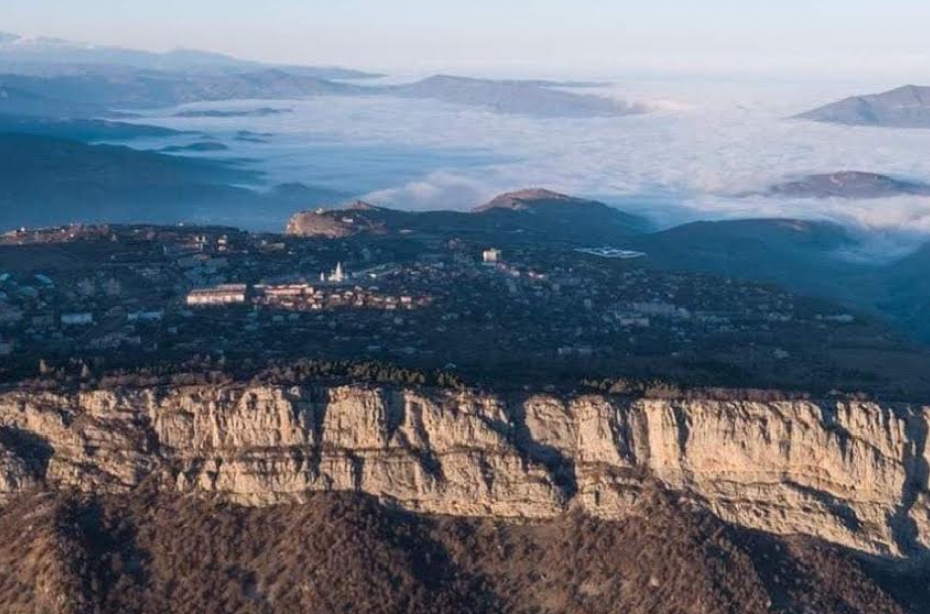Shusha: The Land that Nourishes Art
Shusha, also known as the “Pearl of the Caucasus,” is more than just a city in Azerbaijan; it is a cradle of talent, creativity, and inspiration. Throughout history, Shusha has produced some of Azerbaijan’s most celebrated musicians, poets, and artists, earning a reputation as a land that nurtures artistic genius. Today, Shusha’s cultural revival after years of conflict serves as a powerful symbol of the resilience of art and heritage.
A Hub for Art, Music, and Poetry
From the moment it was founded in 1752 by Panah Ali Khan, Shusha became a cultural and artistic center in the South Caucasus. The city’s unique location—perched on a plateau with scenic views—fostered creativity and artistic expression. Shusha’s lively atmosphere gave rise to many artists, musicians, and poets, establishing it as a cultural beacon that still influences Azerbaijani arts today.
One of the art forms most associated with Shusha is mugham, a deeply emotional genre of traditional Azerbaijani music. The blend of poetry, music, and improvisation in mugham found fertile ground in Shusha, making the city a renowned center for both performing arts and literature.
Shusha’s Most Famous Artists and Cultural Figures
Shusha is the birthplace of many legendary Azerbaijani artists who left an indelible mark on music, poetry, and literature. Some of the most influential figures include:
- Uzeyir Hajibeyov: The father of Azerbaijani classical music and composer of the opera Leyli and Majnun, the first opera in the Muslim world. Hajibeyov’s works reflect the fusion of traditional and Western musical elements.
- Bulbul: A celebrated tenor who pioneered the integration of Western opera techniques with Azerbaijani folk traditions. Bulbul’s contributions helped shape modern Azerbaijani music.
- Khurshidbanu Natavan: One of the most prominent female poets of Azerbaijan. Natavan’s poetry expressed themes of love, longing, and beauty, and her philanthropy played a key role in Shusha’s cultural development.
These figures and many others not only showcased the artistic richness of Shusha but also contributed to Azerbaijan’s cultural identity on a global scale.
A Cultural Renaissance: Shusha’s Revival After Conflict
During the Nagorno-Karabakh conflict, Shusha faced destruction and loss, with many of its cultural landmarks damaged or neglected. Despite this dark period, the spirit of Shusha’s artists and cultural heritage remained alive in the hearts of the Azerbaijani people.
In 2020, Shusha was liberated and began a journey of cultural revival. The restoration of mosques, museums, and cultural landmarks reflects Azerbaijan’s commitment to bringing back the artistic glory of Shusha. Events like the Kharibulbul Music Festival and Vagif Poetry Days are now held in the city, breathing new life into its artistic traditions and celebrating its legacy as a land that nurtures talent.
The Role of Nature in Shusha’s Artistic Legacy
Shusha’s breathtaking natural surroundings—its forests, mountains, and scenic landscapes—have long inspired artists and poets. The calmness and beauty of the environment allowed many creative minds to find solace and inspiration. Mugham performances, poetry readings, and artistic gatherings in Shusha were often held outdoors, further deepening the connection between nature and art.
Even today, the revival of cultural festivals in Shusha reflects this harmonious relationship between the arts and the natural world. As artists return to perform and create in the city, Shusha once again becomes a place where nature inspires creativity.
Shusha: The Cultural Capital that Nurtures the Future
In 2021, Shusha was declared the Cultural Capital of Azerbaijan, recognizing not only its historical significance but also its potential to shape the future of the arts. This designation has already attracted artists, musicians, and poets from around the world, transforming the city into a hub for international cultural exchange.
Azerbaijan’s efforts to revive Shusha aim to ensure that the city continues to nurture new generations of artists, just as it has done for centuries. The combination of restored landmarks, vibrant cultural festivals, and thriving artistic communities offers young artists a place to explore their talents and connect with tradition.
Conclusion: Shusha’s Timeless Legacy
Shusha is not just a city; it is a living symbol of artistic resilience and cultural heritage. From its poets and musicians to its scenic landscapes and restored landmarks, Shusha embodies the spirit of creativity that continues to inspire artists today.
As Azerbaijan revives this historic land, Shusha is once again becoming a cultural lighthouse, shining brightly with the promise of new artistic achievements. In the hands of the next generation, this land will continue to nurture talent and inspire creativity, ensuring that Shusha remains the beating heart of Azerbaijan’s cultural identity for years to come.
